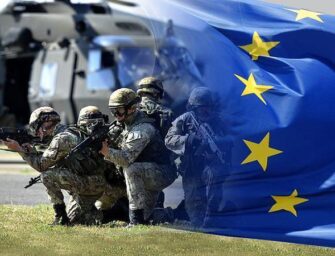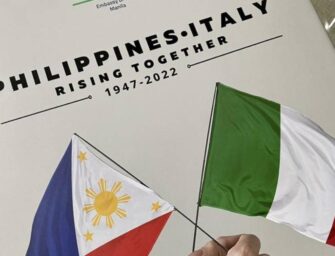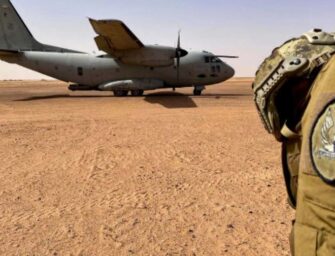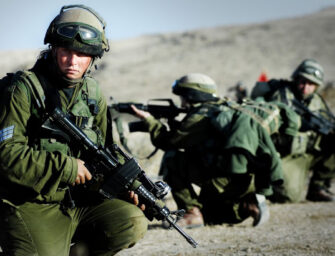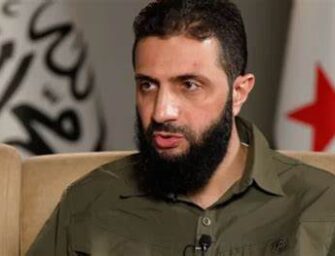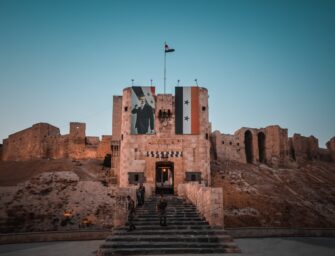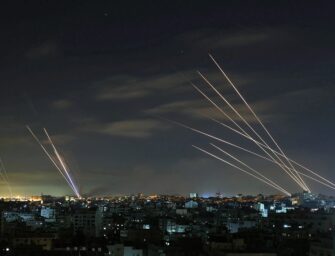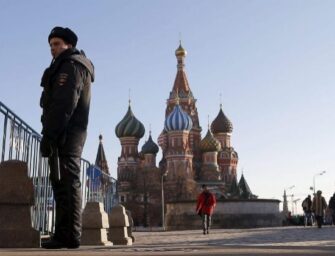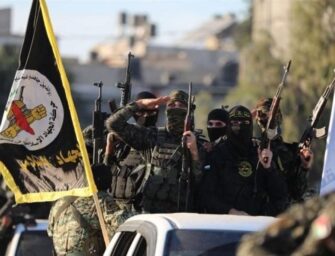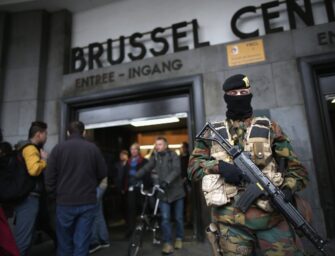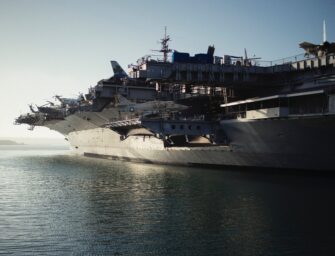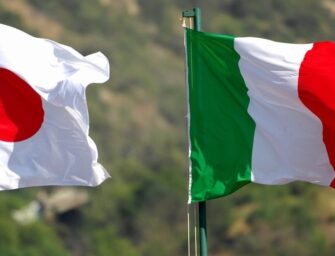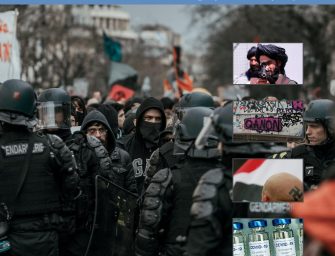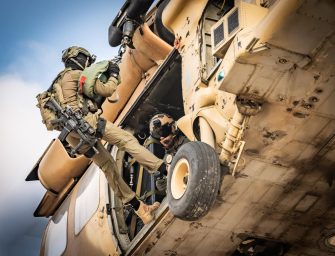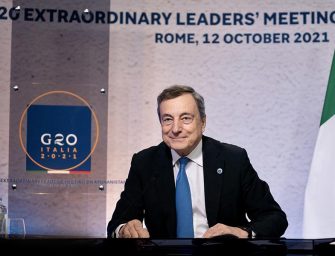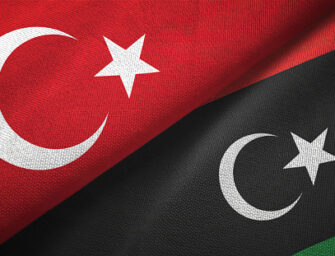The Turkish strategy in Libya: political advantage through Security Force Assistance
Libya: consequences of the Libya-Turkey joint military collaboration
by Claudio Bertolotti
On 15th September, the UN Security Council tasked Secretary-General Antonio Guterres with appointing a special envoy to broker peace in Libya. Meanwhile, Russia and China abstained from voting on the resolution which would also extend the UN mission in the country.
The following day (16th September) the Prime Minister of Libya’s Government of National Accord (GNA), Fayez al-Sarraj, announced his intention to step down, prompting a flurry of speculations about his reasons for doing so. Many believe that Sarraj’s decision was brought about by strong international pressure – particularly by the US – with the intent of appeasing international parties disturbed by the agreements he signed with Turkey, specifically the maritime border demarcation agreement (exclusive economic zone – EEZ) which angered Europeans in general, and France and Greece in particular. Following the agreement and with Turkey’s help, the internationally-recognized premier, whose government controls only parts of western Libya, was able to quash last June a year-long offensive on the capital by eastern commander Khalifa Haftar.
This is a political evolution with serious strategic consequences, despite the fact that up to now, Libya remains divided into two main fronts (Tripoli on the one hand, Tobruk on the other), where multiple actors are pursuing their differing agendas. Ankara’s relations with Tripoli could be seriously affected by the above-mentioned resignation, should it ever materialize, as Turkish and Qatari Defense Ministers signed a deal on 17th August, aimed at providing assistance in restructuring the military in the country. The Government of National Accord of Libya (GNA) and Turkey already started implementing a series of programs to reconstruct the military in the war-torn country: the news was announced by Defense Minister Salah Eddine al-Namrush on 20th September.
The programs, which officially aim to establish a military force in line with international standards, include the restructuring of the armed forces, air defenses, counter-terrorism units, special operations’ units and the navy. Turkish military advisers are expected to provide training and logistical assistance in cooperation with Qatar, in order to re-establish a regular army in Libya.
Turkish military will provide assistance in restructuring the irregular and informal cluster of militias which now constitutes the Libyan Army, turning it into a regular army based on the model used for training the Azerbaijani Army
According to “Daily Sabah” (20th September, 2020) the Turkish military will provide assistance during a transition phase which is expected to lead -through a disarmament, demobilisation and reintegration (DDR) process- to the transformation of the irregular and informal cluster of militias which is now the Libyan Army, into a regular army based on the model that was used when Turkish forces provided training and assistance to their Azerbaijani counterparts. Turkish air force pilots also provided training, and the Azerbaijani military received technical equipment support from Turkey. The process launched by Turkey and Qatar in Libya aims at ‘standardizing’ training and recruitment (“Daily Sabah”, 2020).
So on the one hand, Ankara supports the GNA by means of a Security Force Assistance (SFA) mission, formally implemented through bilateral agreements with Tripoli; the mission includes military equipment and weapons’ supply which Ankara send to Tripoli in violation of the UN arms embargo – imposed by the United Nations Security Council Resolutions (UNSCR) 1970 (2011), 2292 (2016) and 2473 (2019) –; it also exposes the shortcomings of EUNAVFORMED “Irini” mission, which is supposed to prevent weapons’ supply to Libya (Bertolotti, 2020). Turkey’s deployment of military personnel goes hand in hand with the supply of at least 10 types of military equipment consisting of: electronic warfare systems, anti-tank guided missiles, combat drones, self-propelled air defense guns and artillery, surface-to-air missile systems, frigates and fighter ground attack aircraft (Lederer, 2020).
On the other hand, and this represents the most critical aspect, several sources ascertained the presence of Syrian mercenaries sent by Turkey to Libya to fight on the GNA side, consisting in at least 5,000 Syrian fighters, partly belonging to the so-called Syrian “Hamza Division” as well as the extremist “Sultan Murad” group (which is among the Turkish-backed insurgent groups which volunteered to send fighters to Libya); these fighters, who operated with Ankara in Syria’s war, were then sent to help Tripoli-allied militias fight the so-called “Libyan National Army” (LNA) led by the east-based military commander Khalifa Haftar (Magdy, 2020), and were provided with Fnss Acv-15 armoured vehicles, Milkor Mgl grenade-launchers, and US Bgm-71 Tow anti-tank missiles. This presence is likely to decrease security and generate a strong and adverse reaction from the Libyan population. The GNA is probably aware of that and it therefore facilitated the relocation of these jihadi Syrian mercenaries to Azerbaijan, where hostilities against Armenia are on the increase, as well as Turkey’s ambitions.
Focussing on the opposite front, the United Arab Emirates (UAE), Egypt and Russia military support to the LNA is all but marginal.
The UAE deployed military personnel and supplied at least five types of military equipment to Libya, including armored personnel carriers, patrol vehicles and a French Dassault Mirage 2000-9 jet fighter (Lederer, 2020).
Russia transferred at least two types of military equipment into Libya, namely a Mig-29A fighter jet operating from the al-Jufra airbase and a Sukhoi SU-24 supersonic attack aircraft operating from both al-Jufra and al-Khadim airbases, as well as “a main battle tank upgrade” for an unidentified Russian private military company (Lederer, 2020); as the Russian government does not officially acknowledge the mercenaries’ existence, it can deny or play down any Russian casualties while maintaining a military presence in the country. The Wagner group is thought to have transferred “armed private military operatives and military equipment into Libya” to support Haftar’s military operations, including two armored personnel carriers. Wagner military operatives also took part in the withdrawal of Haftar’s forces from Bani Walid on 27th May and on 1st July; Wagner’s operatives were reported to be based at five airbases – al-Jufra, Brak, Ghardabiya, Sabha and Wadden – and at the Sharara oil facility, the country’s largest (Lederer, 2020). Wagner’s involvement in Libya consists in the deployment of 800 to 1,000 personnel since October 2018 and in providing technical support for repair of military vehicles and participation in combat operations (BBC, 2020). Its members have been active as artillery and air observers, as well as in “providing electronic countermeasures expertise and deploying as sniper teams”. The personnel were mainly Russian, but there were also nationals of Belarus, Moldova, Serbia and Ukraine (Lederer, 2020; BBC, 2020).
The 10 other companies accused of violating the arms embargo by providing logistical support to Haftar’s forces include airlines from Kazakhstan, Syria, Ukraine and Tajikistan and two UAE companies (Lederer, 2020).
The resupply of both sides by air was extensive, with flights from the UAE to western Egypt and eastern Libya, and from Russia via Syria to eastern Libya to reinforce the LNA – and from Turkey to western Libya to reinforce the GNA (Lederer, 2020). As for shipments by sea, five vessels destined for government ports flying flags of Albania, Lebanon, Tanzania and Panama were in “non-compliance” with the arms embargo, along with two, destined for Haftar’s eastern ports. One vessel flying a Liberian flag has a UAE owner and the other, flying a Bahamas flag, has a Japanese owner (Lederer, 2020).
WAR AND PEACE IN THE MEDITERRANEAN: understanding the Turkish escalation between the Chinese expansionism in Africa and the reshaping of Middle Eastern equilibria
by Andrea Molle
The renewed interest in the Mediterranean, too often considered as a secondary theater in the context of International Relations, derives from several medium and long-term processes that are affecting the global geopolitical equilibria. In particular, it is the consequence of an aggressive Chinese trade policy in Sub-Saharan Africa, which has intensified in the last decade and sees many African states, such as Kenya and Congo, for example, reduced to colonies or in a de facto subordination to China’s interests.
This dynamic is echoed by Beijing’s desire to complete its Belt and Road Initiative, affirming itself as a privileged trading partner of the most important powers within the EU to force it in a relationship of strong dependence. This scenario is made possible by the vacuum created with the protectionist and isolationist turn of the USA led by Donald J. Trump, who seems to lack any coherent international strategy. Moreover, it is a consequence of the lack of a coordinated European strategy in foreign affairs, as demonstrated by the recent Italian interest in becoming a closer partner to China independently from its partners’ choices.
The intensifying of migratory fluxes, aggravated by climate change, corruption, and the increased radicalization in Africa, is a symptom of the destabilization resulting from the Chinese expansionist policy that handed control of critical commercial routes and hubs over to Beijing. Faced with a substantial erosion of their economic systems, mostly caused by the quasi-monopolies established by Chinese companies and investors and the consequent social crisis, more and more people leave Africa to seek fortune in Europe, accentuating the demographic crisis of the continent. Paradoxically, such an easing of demographic pressure contributes to the perpetuating of Chinese control over African governments, hence aggravating the crisis and divisions within the European Union.
Moreover, the crisis is exacerbated by the recent Turkish initiatives aimed to gain a hegemonic role in the Maghreb and the Eastern Mediterranean. This pitch invasion is seemingly facilitated by the shared Islamic culture to which Turkey claims the role of Defensor in open competition with other countries such as Saudi Arabia. Once again, this is a consequence of America’s withdrawal and the lack of a single European voice. With the expected resignation of Fayez al-Sarraj, the head of the Government of National Accord (GNA) recognized by the United Nations, the effects on the current Turkish activities in Libya are hard to anticipate. Nevertheless, the intentions of Ankara remain unchanged: to become the privileged Chinese partner by taking advantage of this economic and political conjuncture.
To better understand Ankara’s strategy while not underestimating its chances of success, it is paramount to consider the totality and complexities of the Sino-Turkish relations. We are witnessing several signals. First of all, a softening of visa policies between the two powers has been underway for years. In addition to intensified cultural exchanges, China has recently granted Turkey considerable financial resources to support the industrial and military development plans of the government led by Erdogan. To overcome its structural military inadequacies, Turkey is now rumored to considering the purchase of fifth-generation Shenyang J-31 stealth fighter aircraft. The opening to a partnership with China has been made possible by the exclusion of Turkey from the Lockheed Martin F-35 initiative, wanted by the US. It also represents a further step towards Turkey’s exit from NATO. Should it happen, the loss of the Turkish partner would undoubtedly cause a crisis in the Atlantic Alliance, which is already in a state of suspended animation according to several international observers. A possible weakening of NATO is also a goal of Putin’s Russia, which, despite the current political tension with Turkey, is already providing the country with anti-aircraft systems and is pressing Ankara to purchase its Sukhoi Su-57 stealth fighters.
In this context, the normalization of the diplomatic relations between Israel and some of the Middle Eastern powers, such as the United Arab Emirates and Bahrain, and the unconfirmed rumors of possible future agreements for developing common military assets, should not be at all surprising. Indeed, this event cannot be just considered due to Trump’s plan to bring stability to the Middle East, which many commentators describe as insufficient if not wholly nonexistent. Instead, it must be understood as evidence that the Arab world, in a perpetual crisis of relevance, is aware of the profound changes in the geopolitical equilibrium of the Eastern Mediterranean and is trying to gain the most advantageous position possible. Finally, what seems to be consolidation now may appear as an anti-Turkish front. However, on a closer look, it is more likely to form an opposing front to Chinese neo-colonial reaches in Africa, or at least contain them while reducing at the same time the dependency from the West.
This game of Risk against the Sleeping Giant will eventually involve all those Persian Gulf countries, which were once sworn enemies of the Jewish state, which today think of Israel more and more as a natural ally. To them, Tel Aviv will represent not only a strong military partner but also an economic and technological hub capable of rivaling Beijing. Such a realignment of alliances and loyalties would probably lead to a solution to the long-standing Israeli-Palestinian conflict. This result, however, will not be due to either the American mediation or the joint efforts of various nations and international organizations. But instead to the emergence of a common enemy at the horizon. If a solution is therefore reached, it will, unfortunately, be at the expense of the Palestinians. Clinging to obsolete rhetoric and increasingly marginalized by their former allies, they do not seem willing to accept the changes and adapt their long-term objectives and strategy accordingly, falling into complete irrelevance.
With tensions with China predictably on the rise and in the face of the recent threats to Greece, the US has recently taken a stand, causing the temporary withdrawal of Turkish exploration vessels in the territorial waters controlled by Athens. However, coming “too late and one dollar short,” the US is not signaling any intent to get involved in the Eastern Mediterranean. On the contrary, responding to the American intervention and following the announcement of military exercises planned by the Greek armed forces in the northern Aegean, Ankara accused again Athens of violating the 1923 Treaty of Lausanne, which ended the Greek-Turkish war (1919- 1923) by redesigning the new borders between the two countries. It is not the first time that Turkey has accused Greece of violating the Treaty. The first time was in June 1964, following the deployment of a Greek motorized brigade on the island. However, this time Turkey does not seem to rule out a military reaction to the exercises recently announced by Athens.
On the northern shore of mare nostrum, things are not going any better. Although it is clear that the game that is being played in the Mediterranean, and that involves Greece and Cyprus, is an existential threat to European and Western interests, including the survival of the European Union, few nations have fully understood it. Amongst the European capitals, the change in the balance that for years accompanied the Union’s Mediterranean policy seems to be fully appreciated only by Paris. Accused of only aiming to control negligible energy resources, the second powerhouse of the EU has instead always pushed for a more incisive international role for Europe and its military integration. France is left alone while Berlin acts as Germany is still a trading state, interested only in short-term economic gains and not to upset the precarious balance reached with Turkey on the issue of migrants from the Balkan route.
As for Italy, Rome seems to think its best option is to take once again on the very same posture of equidistance and neutrality that has reduced it to a background actor in the international relations system with the addition of a dangerously ambiguous relationship with China. Nevertheless, France, which appears to be the natural candidate to lead the Union’s foreign policy, cannot expect to win this game alone. Geography is not an opinion: without Italy, the second naval power in the EU, Europe stands no chances of being relevant. It will inevitably be doomed in a humiliating position of subjugation.
Syria: the Russian-Turkish competition
The Russian commitment in post-conflict reconstruction: Moscow will be in charge of reactivating roads, rebuilding strategic pipes and infrastructures.
Syria: Russia gets the upper hand over Turkey
On September 17, Russia and Turkey agreed on the institution of a demilitarized area in the Syrian region of Idlib, the last fortress of the about 60.000 members of the armed opposition groups and anti-government rebels including Jihadist and former Qaedist groups such as Hayat Tahrir al-Sham (Levant Liberation Committee) and Jabhat Fateh al-Sham.
The demilitarized area is about 15-20 km wide. Inside the area, Russian, Turkish and NATO units will perform coordinated patrol activities; radical groups shall leave the area while rebel groups shall surrender heavy weapons to Syrian governmental forces. This agreement was the outcome of the Sochi meeting between President Vladimir Putin and his Turkish equivalent Recep Tayyip Erdogan. Apparently, this agreement managed to prevent a serious humanitarian crisis that could have affected about 3 million people, if the announced military offensive had actually taken place.
The terms of the Russian-Turkish agreement reinforce the idea that the Idlib campaign will follow the path traced for the previous campaigns, like the one for Daraa. This approach confirms the strategic vision of the Syrian regime and its allies, who systematically induced hesitant armed opposition groups to scatter on the territory, so that they could be fought without great effort and with limited collateral effects on the civilian population.
Ankara will have to maintain a sort of Turkish protectorate on rebel troops
The main advantage for Turkey is to avoid the concentration of Syrian governmental troops in that area. The downside is that Ankara will have to maintain a sort of Turkish protectorate on rebel troops in evident distress and, should the campaign against Jabhat Fateh al-Sham and other Jihadist groups be successful, Turkey will have the further burden of guaranteeing them a way out of Syria.
On the other hand, the agreement gives Russia and Syria the opportunity to secure the strategic line of communication that cuts across Idlib and connects the North of Syria to other cities. Transit along the Aleppo-Latakia and Aleppo-Hama motorways is expected to resume by the end of 2018. Russia also obtains another advantage from the agreement, in particular on the operational level. As its forces cannot keep fighting the Jihadist and other rebel groups, it is going to deploy its troops along with Turkish troops in the demilitarized area in order to reduce the presence and arsenals of those rebels which were until now supported by Ankara.
The US, in turn, stays out of the conflict and its solution. Similarly to what happened in the South (Daraa), US support to opposition groups in the province of Idlib seems to be limited to deterrence from the hypothetical use of chemical weapons, to which the US administration could nevertheless and in a limited, tactlcal manner respond. In brief, a merely symbolic help to the rebels that Ankara would like to keep supporting.
So the war in Syria essentially continues but with the Putin-Erdogan agreement the trend appears to consolidate Russians’ influence in the area, to the benefit of Damascus and Teheran.
Analysis, assessments and previsions
Russia wants a new security order in the Middle East. Whatever happens to the rebels in Idlib province, Russia is determined to keep Syria firmly inside its area of influence – both as its stronghold in the Middle East and to help contain the US and its allies.
the presence of 38 Russian companies at the Damascus International Fair, last September, proved that the economic and trade activities will be the main enablers of the Russian strategic influence
The contribution of the Russian armed forces was decisive in the fight against the opponents to Bashar al-Assad’s government and against the Islamic State, and it granted Moscow a more influential position compared to Western powers’. Russia was able to take the upper hand in diplomacy and international relations as well as on military ground, as the recent sales’ agreement for S-300 missile systems to Syria seems to confirm. The agreement is causing concern to another big regional player, Israel, who has long been carrying out bombing actions on Syrian territory with the aim of containing Iran and countering Lebanese Hezbollah.
The Russian role on the military front was paramount, but also its commitment in post-conflict reconstruction cannot be underestimated. Moscow will be in charge of reactivating roads, rebuilding strategic pipes and properties destroyed during these last seven years of war. The participation of 38 Russian companies to the Damascus International Fair, last September, proved that the economic and trade activities will be the main enablers of the Russian strategic influence in the Middle East.











